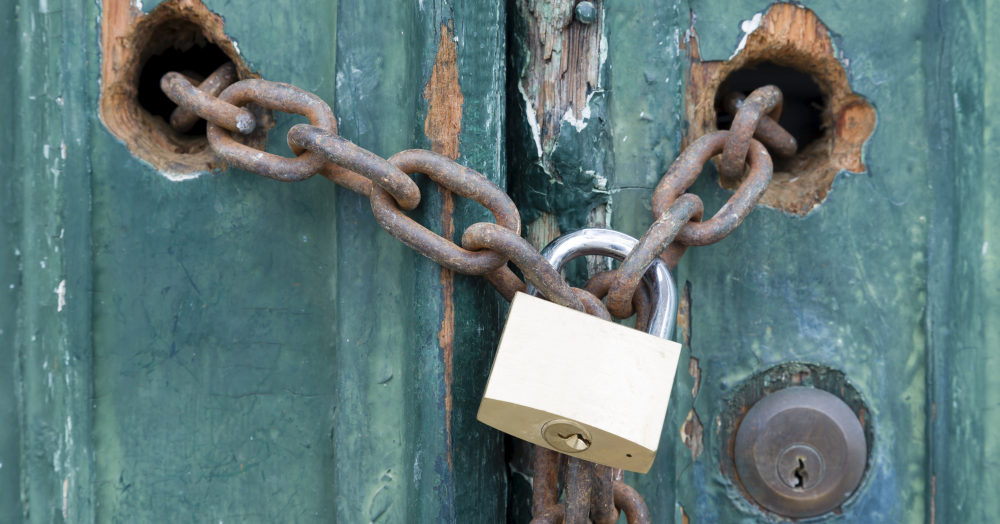By following a few simple rules, you can ensure you don't get shackled by the chain and enjoy your new home without any headaches.
One of the biggest dreads when you come to move-house is the thought of being caught in a property chain.
Unless you’re a first-time buyer, you’ll have a property to sell and one to buy and the chances are the people you’re selling to and buying from are in the same position.
This is not unique – the chances are you’ll be in the same situation when changing cars – but the difference with a house move is the sums involved and the amount of money you stand to lose if things go wrong.
The reality is that things rarely do go wrong and as with most things in life, the greatest fear is fear itself so, if you prepare in advance, you can go a long way to ensure a smooth and incident free transition.
By following a few simple rules, you can ensure you don’t get shackled by the chain and enjoy your new home without any headaches.
Have your property valued: Before you start browsing for your dream home, you’ll need to know how much your current property is worth. Start online by looking at similar properties in your street, then get at least three local estate agents to give you a formal valuation.
Get your finances sorted: Next you’ll need to work out much you can comfortably afford to spend on your next home. How much equity do you have in your current property and what would your monthly mortgage payments be if you were to move? You may be prepared to make a few economies to land your dream home, but if you’re budgeting for beans on toast for dinner every day until you’re 65, perhaps you need to think again.
Choose an estate agent: Ideally, you’ll want the agent you feel has the best local knowledge, who will give you sound advice and who’ll be with you every step of the journey. Buying and selling a house is likely to be the biggest financial transaction you’ll ever make, so it’s not a time to take chances or decide on a whim. Don’t always go for the agent who gives the highest valuation - some are renowned for giving an overly high valuation in order to gain your business.
Sell your home: Buying a property should generally take around 6-12 weeks from having an offer accepted to completion although things can and often do go wrong, leading to delays. When you’re buying as part of a chain, things can take longer. According to Zoopla, the average sale time in a chain is six months so be realistic with your expectations for when you complete.
Find a property and do the maths: Before you’ve sold your home, you should already have found a property and had a bid accepted. Before you do this, work out the sums. Consider what work, if any, you’d need to do and any associated costs including legal fees, Land and Building Transaction Tax (LBTT) and removal costs. Being in a chain can work against you so it is important to at least be able to react quickly.
Some buyers won’t be ready to put their home up for sale until they have secured a new property and an efficient estate agent will have their details and photos arranged, ready to go to market at the soonest opportunity.
Get a good lawyer: Your conveyancing solicitor will need to do all the relevant property searches before contracts are exchanged. This process can take longer if you have a lawyer who’s less than proactive. Shop around, get quotes from and speak to a few and read reviews before instructing.
Drive the process forward: A good estate agent will take the initiative and coordinate the parties in the chain, keeping everyone up to date via email. This is a good way of ensuring everyone knows what’s happening and unplugging any blockages.
Set a completion date: When surveys and local searches are completed and contracts are ready to be exchanged, set a date on which funds will be transferred and keys handed over. It’s important that all parties co-ordinate a completion date that works for everyone. This will take some correspondence – via your solicitor and those of the other members of the chain – and you’ll need to be prepared to compromise.
Ensure a smooth moving in: You need to arrange for the handover of electricity, gas, water and telephone accounts for the property, and that the seller has got readings made. You may wish to hire a removals company to pack up your current home and help with the move to your new one.
For information about buying or selling a home, get in touch with your local Scottish Property Centre branch.


 By
By 



Share this with
Email
Facebook
Messenger
Twitter
Pinterest
LinkedIn
Copy this link